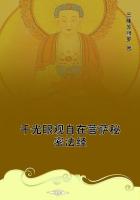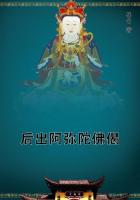ARGUMENT.
IN THIS BOOK THE END OF THE TWO CITIES, THE EARTHLY AND THE HEAVENLY, IS DISCUSSED.AUGUSTIN REVIEWS THE OPINIONS OF THE PHILOSOPHERS REGARDINGTHE SUPREME GOOD, AND THEIR VAIN EFFORTS TO MAKE FOR THEMSELVES A HAPPINESSIN THIS LIFE; AND, WHILE HE REFUTES THESE, HE TAKES OCCASION TO SHOW WHATTHE PEACE AND HAPPINESS BELONGING TO THE HEAVENLY CITY, OR THE PEOPLE OFCHRIST, ARE BOTH NOW AND HEREAFTER.
CHAP.1.--THAT VARRO HAS MADE OUT THAT TWOHUNDRED AND EIGHTY-EIGHT DIFFERENT SECTS OF PHILOSOPHY MIGHT BE FORMEDBY THE VARIOUS OPINIONS REGARDING THE SUPREME GOOD.
As I see that I have still to discuss the fit destinies of the two cities, the earthly and the heavenly, I must first explain, so far as the limits of this work allow me, the reasonings by which men have attempted to make for themselves a happiness in this unhappy life, in order that it may be evident, not only from divine authority, but also from such reasons as can be adduced to unbelievers, how the empty dreams of the philosophers differ from the hope which God gives to us, and from the substantial fulfillment of it which He will give us as our blessedness.Philosophers have expressed a great variety of, diverse opinions regarding the ends of goods and of evils, and this question they have eagerly canvassed, that they might, if possible, discover what makes a man happy.For the end of our good is that for the sake of which other things are to be desired, while it is to be desired for its own sake; and the end of evil is that on account of which other things are to be shunned, while it is avoided on its own account.Thus, by the end of good, we at present mean, not that by which good is destroyed, so that it no longer exists, but that by which it is finished, so that it becomes complete; and by the end of evil we mean, not that which abolishes it, but that which completes its development.
These two ends, therefore, are the supreme good and the supreme evil;and, as I have said, those who have in this vain life professed the study of wisdom have been at great pains to discover these ends, and to obtain the supreme good and avoid the supreme evil in this life.And although they erred in a variety of ways, yet natural insight has prevented them from wandering from the truth so far that they have not placed the supreme good and evil, some in the soul, some in the body, and some in both.From this tripartite distribution of the sects of philosophy, Marcus Varro, in his book De Philosophia,(1) has drawn so large a variety of opinions, that, by a subtle and minute analysis of distinctions, he numbers without difficulty as many as 288 sects,--not that these have actually existed, but sects which are possible.
To illustrate briefly what he means, I must begin with his own introductory statement in the above-mentioned book, that there are four things which men desire, as it were by nature without a master, without the help of any instruction, without industry or the art of living which is called virtue, and which is certainly learned:(2) either pleasure, which is an agreeable stirring of the bodily sense; or repose, which excludes every bodily inconvenience; or both these, which Epicurus calls by the one name, pleasure; or the primary objects of nature,(1) which comprehend the things already named and other things, either bodily, such as health, and safety, and integrity of the members, or spiritual, such as the greater and less mental gifts that are found in men.Now these four things--pleasure, repose, the two combined, and the primary objects of nature--exist in us in such sort that we must either desire virtue on their account, or them for the sake of virtue, or both for their own sake; and consequently there arise from this distinction twelve sects, for each is by this consideration tripled.
I will illustrate this in one instance, and, having done so, it will not be difficult to understand the others.According, then, as bodily pleasure is subjected, preferred, or united to Virtue, there are three sects.It is subjected to virtue when it is chosen as subservient to virtue.Thus it is a duty of virtue to live for one's country, and for its sake to beget children, neither of which can be done without bodily pleasure.For there is pleasure in eating and drinking, pleasure also in sexual intercourse.














